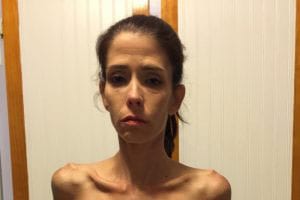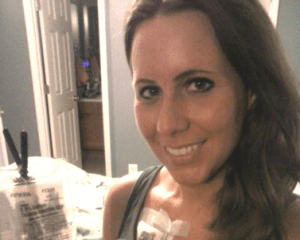Just days after my CVID diagnosis, I was invited to a support dinner.
It was at this support dinner that I became aware of how unique my situation was; I was the youngest person in the room.
Being diagnosed in your twenties is becoming more and more common. In fact, all diagnoses are becoming more common as awareness about primary immunodeficiencies is spreading and as technology improves.
As my 29-year-old friend (and fellow CVID warrior) and I discussed, however, it is all too easy to be jealous of people who were diagnosed at an older age or a younger age. To us, it seems that if you are diagnosed at an older age, you most likely have a steady career, you’ve settled down with a (hopefully) supportive and loving family, and you can live a slower life. If you were diagnosed at a young age, you may not know a life other than the one you are living with a chronic illness. All of these things may not be true, and diagnosis at any age has its own distinct challenges.
Perhaps selfishly, we imagine that diagnosis in your 20s is particularly difficult and here’s why:
Firstly, an incurable diagnosis changes your future plans.
In your 20s, you are brimming with ideas for your future and the possibilities seem endless. Suddenly, a diagnosis slaps limitations on your previously carefree life. Perhaps you spent your education or prior job experience building up to something that you can no longer do. It is heartbreaking, but you will pick up the pieces and start again. Speaking to a career counselor may help.
Secondly, you may not have a steady job or reliable insurance.
Being diagnosed with a chronic illness means needing treatment. Needing treatment may prevent you from keeping a steady job. It may also mean changing careers to ensure that you have insurance at all times and are not at higher risk due to a dangerous or unsanitary worksite. It could also mean applying for disability. Support lines and patient advocacy nonprofits can help sort out all that tricky business.
Thirdly, your friends are young and energetic.
In your 20s, most of your friends are healthy as a clam! Luckily, they probably haven’t experienced any major health issues and might not understand why you’re so fatigued, stressed, and anxious. If you take the time to explain it to them, they’ll understand. If they don’t, maybe they aren’t the right person to hang out with right now. Take this time to learn your limits. You can still go out with your friends but can leave a little bit earlier. You usually don’t miss anything great after midnight anyways. When I leave early, a friend will sneak away with me and we’ll grab some greasy, late night grub, which is usually way better than whatever party we’ve left behind.
Lastly, dating gets even more confusing.
As if dating norms weren’t vague enough these days, now you have to decide when to tell your prospective partner about your health issues. I’m still a bit uncomfortable broaching the subject with new friends, so bringing it up with a date can be a bit awkward. A million fears run through my head when I think about how they’ll react. In reality, it’s never that big of a deal. If your date’s not okay with it, maybe they’re not the one for you. It is such a relief when my date holds my hand and asks questions about my health issues, instead of running screaming for the hills (which will almost definitely never happen).
Being in your 20s is a bit of a mess whether you’re sick or not. You’re still figuring out how to “adult,” who you are, and where your life is going. Adding in a new diagnosis sometimes makes that process even more baffling, but sometimes it can be illuminating. Thanks to my diagnosis, I know my limits, understand my body a bit better, am healthier thanks to my treatment, and know myself so much better. Everyday that I’m not sick is a day that I cherish and in the end, I think being diagnosed has made me a much more grateful, happier person. I wish that for all of you as well. Good luck out there!
About the Author: Jennifer is a Historian, Linguist, Researcher, and Translator living in London, UK. Originally from the United States, she moved abroad to pursue her dreams of living abroad, despite having a rare and chronic illness, Common Variable Immunodeficiency (CVID). She blogs about her experiences with a chronic disease, as well as her travels and love for vintage fashion at www.peanutharvester.com.





